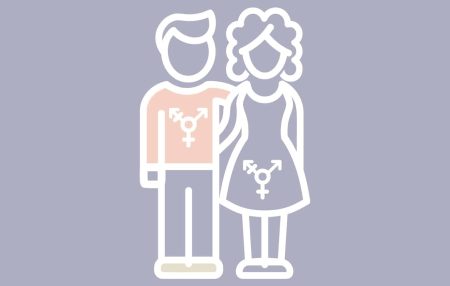26 November 2020
The fragility of human fertility should not be underestimated. Individual fertility and family building hopes and dreams can be unexpectedly lost or impaired through accident, illness, premature infertility and death. Recent medical studies provide additional evidence of its fragility and analysis that the male reproductive system is, in particular, vulnerable to a range of viral infections including Covid-19. As such, it has never been more important to take steps to safeguard our fertility and family building plans now and into the future.
Covid-19 and male fertility
Our knowledge of the impact of Covid-19 on the human body has steadily increased in recent months and we are now starting to build our understanding of its impact on male fertility (in addition to its impact on the respiratory and gastrointestinal tract, heart, liver and kidneys).
A Chinese medical study published on 23 October 2020 in EClinicalMedicine entitled “Impaired spermatogenesis in COVID-19 patients” looked at the impact of SARS-CoV-2 infection on male fertility. It represents a small single-centre, hospital-based study that included specimens from male patients that had died of Covid-19 as well as recovering Covid-19 patients and an equal number of age-matched controls.
This study states that there is already substantial recorded evidence that the male reproductive system is vulnerable to the impacts of viral infections like MUMPS, ZIKA, Hepatitis B Virus (HBV), Hepatitis C Virus (HCV), Human Immunodeficiency Virus (HIV), Human papillomavirus (HPV), Herpes and EBOLA. It goes on to state that previous Covid-19 studies focused on the detection of SARS-CoV-2 in the male reproductive tract with inconsistent results. As such, this study sought to carry out an investigation of male reproductive health and bridge existing gaps in knowledge and understanding, asserting that Covid-19 affects more males than females with a male to female ratio of 2.7:1.
This small Chinese study found that Covid-19 has an impact on male fertility, demonstrated by impaired spermatogenesis (production of mature sperm) with lower sperm count, impacting sperm motility, as well as inflammatory responses in testis and epididymis and altered hormonal levels. It observed pathological changes caused by Covid-19 disease in male testes (primary male reproductive organs) and states that this might impact healthy reproductive well-being in male Covid-19 patients in the long-term. Accordingly, it recommended that clinicians pay special attention and provide additional care and long-term screening for these patients to help them restore a healthy reproductive life, determine whether or not these impacts are reversible and develop therapeutic strategies to assist them.
This Chinese study was quickly followed by publication of research by the University of Miami, Florida in The World Journal of Men’s Health on 3 November 2020 that found impaired sperm function in testis tissues of three out of six men who had died from Covid-19. It states that the presence of SARS-CoV-2 viral particles in the testicular tissue fills a fundamental gap in knowledge of organs affected by Covid-19 in men. It asserts that these findings could be the first step in discovering impacts to fertility and whether the virus can be sexually transmitted. It also found presence of Covid-19 in testis tissue of a patient who had recovered from the virus and it concludes that more studies are needed to evaluate precisely how testis tissue responds to the virus and the implications for male fertility and sexual transmission.
Fertility and Family Law
Across the globe we have been hit hard by the Covid-19 pandemic and the world is rapidly changing and evolving as a result. This, together with the fragility and risks to our fertility, continues to impact our family building and fertility treatment outcomes and day-to-day family life. Added to this, we have seen a significant decline in global fertility rates which have halved between 1950 and 2017 according to research published in July 2020 by the University of Washington’s Institute for Health Metrics and Evaluation (see previous blog “Why we need fertility and wider law reform part III”).
Specialist fertility and family law advice can help maximise and preserve individual fertility, make proactive informed decisions about conception and family creation, biological identity and legacy and legal outcomes if life does not go to plan. In doing so, it can assist with many complex fertility and family law issues, including:
- Legal issues and options where men and women face impaired fertility or lost fertility due to cancer diagnosis or other illness, unsuccessful conception attempts, change in gender, change in personal circumstances, delayed parenthood (e.g. fertility preservation and maximisation, management of existing personal relationships and implications of using donor gametes and fertility treatment).
- Legal issues and options associated with assisted conception involving a known donor, co-parent or surrogate (e.g. legal parentage, parental rights, financial responsibility and dispute mitigation).
- Difficulties with storage and use of frozen eggs, sperm and embryos in fertility treatment in the UK (e.g. problems with consent and expiry of storage terms).
- Issues associated with import of frozen gametes and embryos into the UK for use in fertility treatment and surrogacy (e.g. due to anonymous and commercially obtained gametes and embryos which engage UK public policy restrictions).
- Issues concerning the export of frozen gametes and embryos abroad for use in fertility treatment and surrogacy (e.g. consent and storage term difficulties).
- Unexpected death of a loved-one and related issues associated with posthumous storage and use of eggs, sperm and embryos in fertility treatment (e.g. due to an accident or illness).
- Legal parentage issues and disputes (e.g. concerning DNA testing, direct-to-consumer genetic testing, rectification of birth certificate, declaration of parentage, step-parent adoption, recognition of overseas adoption, parental order).
- Care and upbringing of children following a dispute with an ex-partner, parent, donor or surrogate (e.g. contact, residence, financial arrangements, parental responsibility, specific issue or prohibited steps).




